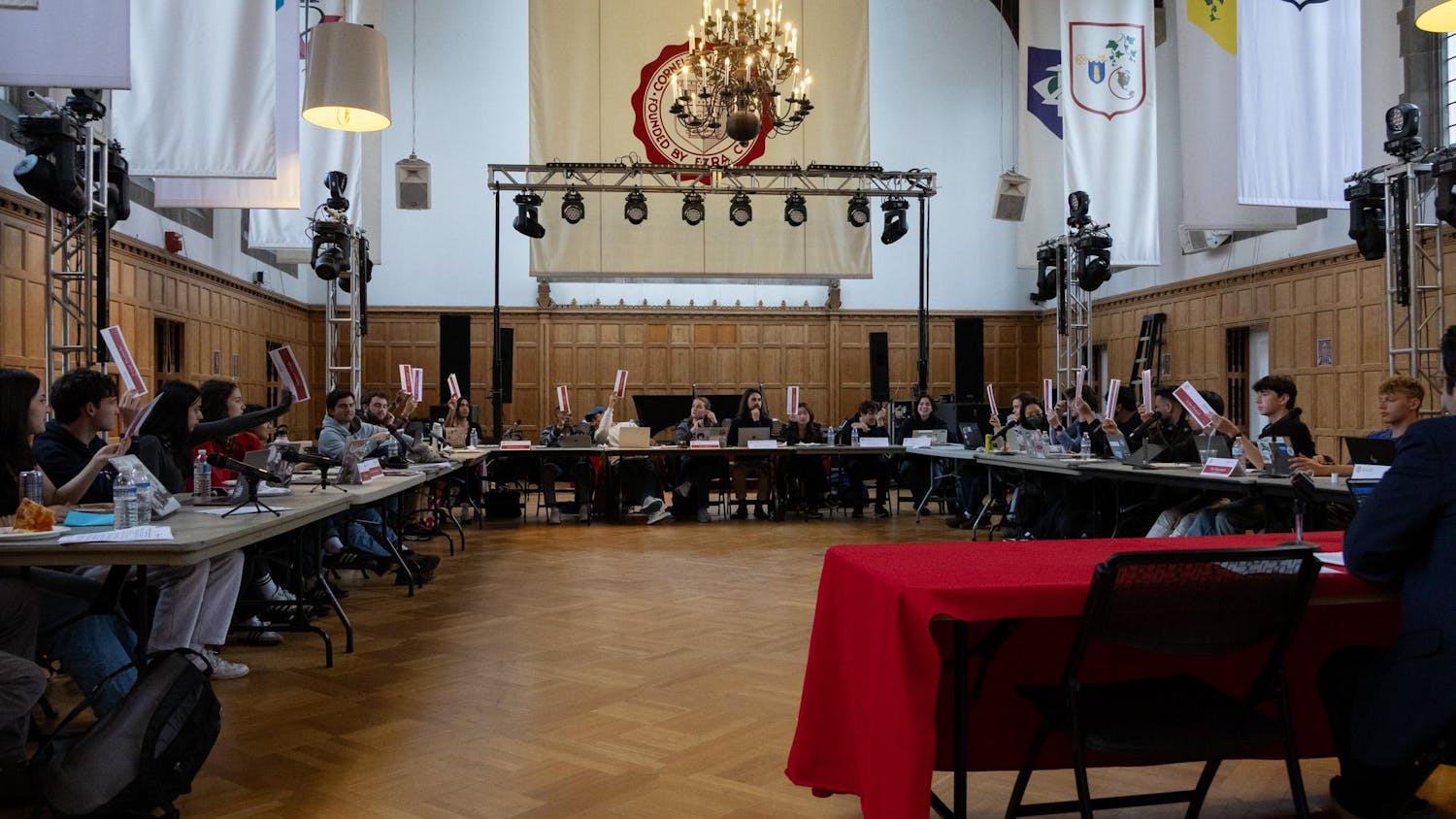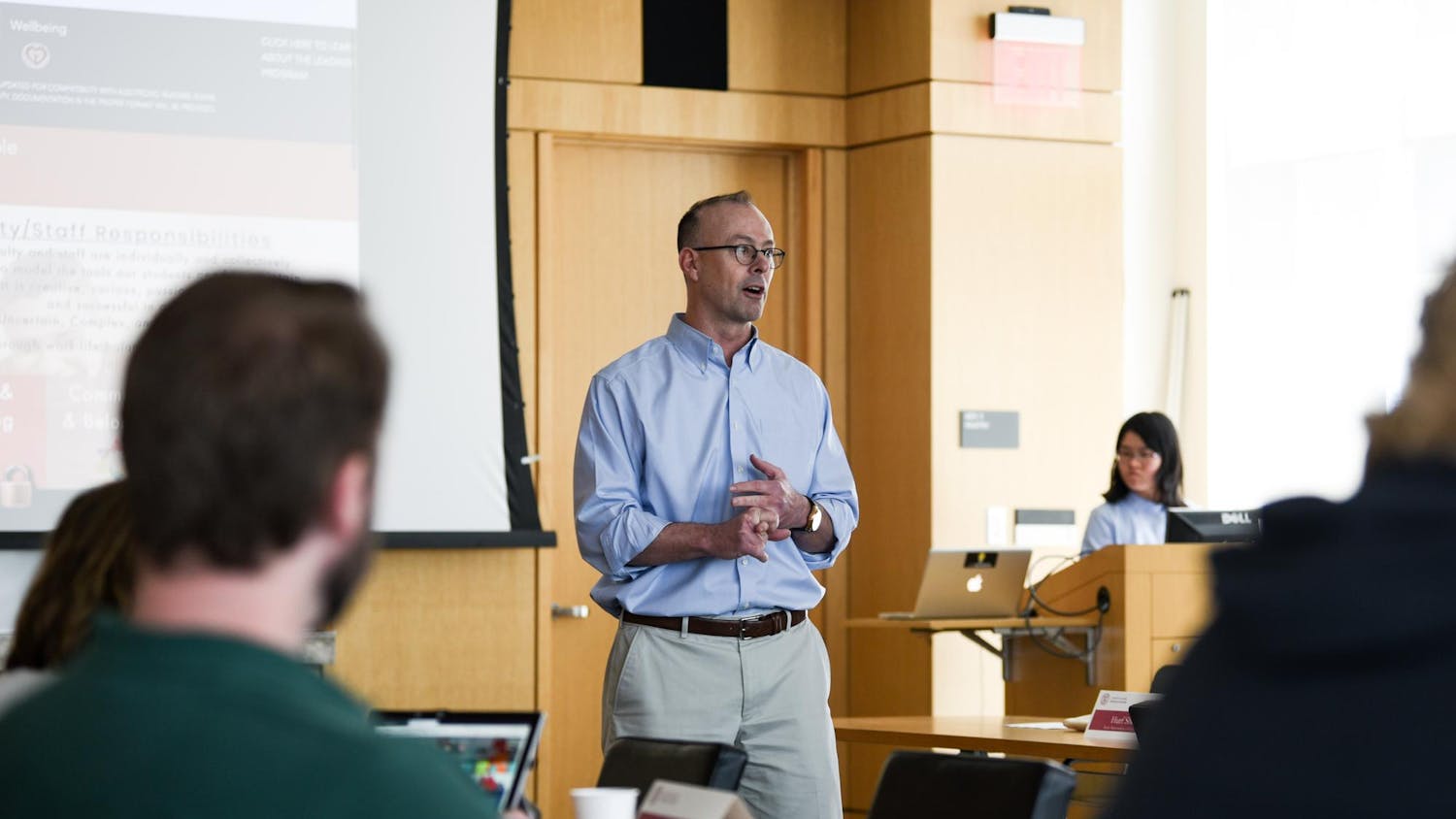Dean of the Graduate School Barbara Knuth and Vice President for University Relations Joel Malina addressed the Graduate and Professional Student Assembly on Monday evening, reassuring graduate students about a provision of the proposed Congressional tax plan but warning of its “very, very adverse” impacts for higher education.
The provision in question, part of the tax reform bill recently passed by the House of Representatives, would repeal section 117(d) of the Internal Revenue Code that classifies a qualified tuition reduction as a non-taxable benefit. This would effectively tax qualified tuition reductions for many graduate students nationwide.
Knuth stressed that the University instead follows section 117(a)-(c), which classifies qualified scholarships on tuition as non-taxable, so Cornell’s graduate students would not be affected by this provision of the House bill.
However, Knuth said the tax reform bill, if signed into law, would be destructive for graduate education across the country.
“It is a concern to Cornell though because nationwide, repealing 117(d) would have a very, very adverse impact on graduate education across the board, nationally, because many schools do depend on section 117(d) to give qualified tuition reduction to graduate students,” she said.
"The lawmakers who are doing this have no idea what they’re doing. And that’s not a laugh line, that is the unfortunate reality," Malina added.
Alex Loiben, grad, GPSA vice president of operations and staffing, told The Sun in an interview that he would not have attended graduate school if section 117(d) were repealed.
“I know for a fact that myself and many other students would not have gone into grad school if they had that much of their stipend taken out directly for taxes due to being taxed like they make twice as much as they actually do,” he told The Sun. “And the fact that we even have to debate that is appalling.”
While it would not directly impact Cornell graduate students, the repeal of 117(d) could also eliminate employer-provided education benefits for faculty and staff, Knuth noted. This would hit the Cornell Children’s Tuition Scholarship Program, which currently allows employees to receive reduced tuition for their children who attend Cornell or other schools, she said.
In light of these harms, Malina discussed the steps that the University is taking to prevent the repeal of section 117(d), including lobbying in Washington, D.C. through Cornell’s Office of Federal Government Relations, calling other peers in higher education daily and visiting Republican representatives from New York.
“What we’re hearing in other Republican House offices is receptivity to a number of our concerns, in particular this whole notion of 117(d) elimination of that exemption,” Malina said.
When asked about other troubling areas in the proposed tax legislation, Malina discussed an excise tax on university endowment earnings that has a ten-year estimated impact of $105 million for Cornell.
The bill would eliminate the University’s ability to use tax-free bonds in construction and could impact proposed residence hall expansion on north campus. It would also tax Cornell based on the salaries of the University’s top five earners, and could discourage people from going into higher education, he said.
Malina commended GPSA for co-sponsoring a call-a-thon before Thanksgiving and encouraged graduate students to continue to reach out to representatives in Congress.
“I want to encourage those of you who either who didn’t participate or are thinking about making additional contacts, that’s really what’s at the end of the day going to make a difference: constituent communications, expressing your personal story,” he said.

Administration Addresses Graduate Students’ Concerns Over Congressional Tax Plan
Reading time: about 3 minutes
Read More










